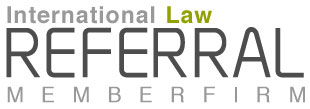Chinese State Investor Buys Australian Bank Stakes
Source: Financial Times  01/03/2008
A secretive Hong Kong-based subsidiary of
The investments were made in the past two months and built up during several weeks so as not to move the banks’ share prices or trigger any mandatory disclosure requirements, according to an internal report by one of the Australian banks.
A banker familiar with SAFE Investment’s activities said the firm had also been looking at similar under-the-radar investments in
After repeatedly denying any knowledge of the transactions or even the existence of its subsidiary, SAFE confirmed to the Financial Times that Hong Kong-registered SAFE Investment Company is its wholly owned subsidiary, established in 1997 slightly ahead of the
SAFE continued to deny knowledge of the Australian bank investments or any investments in London-listed companies and asked the Financial Times not to publish any details.
A senior official did say, however, that if any such investments existed, they would be “good for the countryâ€.
SAFE Investment Company also repeatedly denied all knowledge of the investments or its relationship to SAFE, even when confronted with the company’s share register. This shows SAFE holds 99,999,999 of the 100m shares issued. Hu Xiaolian, SAFE’s chairwoman, holds the remaining single share.
The investments in the Australian banks were each about A$200m ($176m), a trifling amount compared with the more than $1,430bn in
But the purchases raise questions about why SAFE is making the kind of risky investment that China Investment Corp, the country’s nascent sovereign wealth fund, is supposed to be responsible for.
One of the chief reasons for establishing the CIC, which has $200bn to invest, was to earn better returns on a portion of the country’s forex reserves by making riskier investments, such as the stakes it has taken in Morgan Stanley and Blackstone.
People familiar with its operations speculated SAFE Investment may be taking stakes in foreign companies on behalf of CIC or in preparation for an eventual merger with CIC.
But CIC denied the stakes had been bought on its behalf and said there was no plan to absorb SAFE Investment at present.
An Australian banker pointed out SAFE had invested in each of
By Jamil Anderlini in


